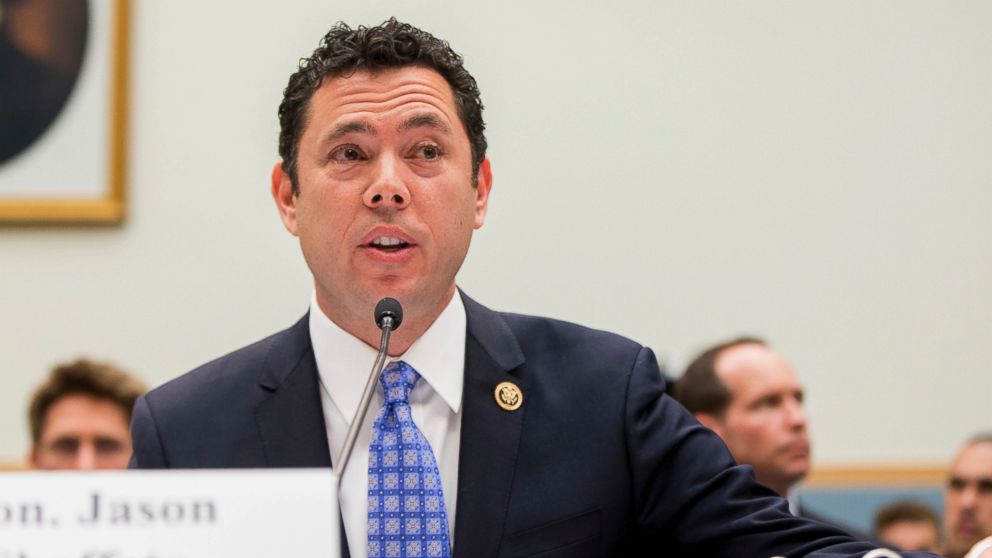Top Republicans Ask Justice Department to Investigate Clinton for Perjury
Republicans want to know whether Clinton lied to Congress.

— -- Top House Republicans have formally asked the U.S. Attorney for the District of Columbia to investigate whether presumptive Democratic presidential nominee Hillary Clinton lied to Congress about her use of a private email server.
“The evidence collected by the FBI during its investigation of Secretary Clinton’s use of a personal email system appears to directly contradict several aspects of her sworn testimony,” House Oversight Committee Chairman Jason Chaffetz, R-Utah, and House Judiciary Committee Chairman Bob Goodlatte of Virginia wrote in their Monday letter to District Attorney Channing Phillips.
FBI Director James Comey testified before Chaffetz’s panel last week about the investigation into Clinton’s private email use. He recommended that Clinton not be prosecuted for her handling of classified information, but said she and her State Department staff were “extremely careless.”
In October, the former secretary of state told the House Select Committee on Benghazi under oath that she never sent or received emails marked classified over her private email server. Republicans are concerned that Clinton lied to them after Comey said some of Clinton’s emails were marked classified.
Comey told the panel the FBI had “no basis to conclude” that Clinton lied to the FBI when the agency interviewed her about her emails. He also suggested that Clinton may not have understood that some of her emails were marked classified.
Chaffetz hinted at a criminal referral during Comey’s appearance last week.
Clinton spokesman Brian Fallon dismissed Chaffetz’s referral on Twitter Monday afternoon, calling it “another futile, partisan” effort “now that the Justice Department has declared it resolved.”
In the wake of Comey’s announcement, House Speaker Paul Ryan requested that Director of National Intelligence James Clapper deny Clinton access to classified information during the presidential campaign -- which would prevent her from receiving the traditional classified security briefings presidential nominees receive after the major party conventions.
Chaffetez has also requested the FBI's investigative file from its Clinton email probe, and more than 200 Republicans have signed on to a letter pressing Comey to answer follow-up questions about his decision and the agency's investigation.
A majority of Americans -- 56 percent -- disapprove of the FBI's recommendation not to charge Clinton with a crime over her use of a private server and handling of classified information, according to a new ABC News/Washington Post poll. Roughly the same number of Americans say the episode leaves them worried about Clinton as president, but just 28 percent of voters say the email issues make them less likely to support her.



